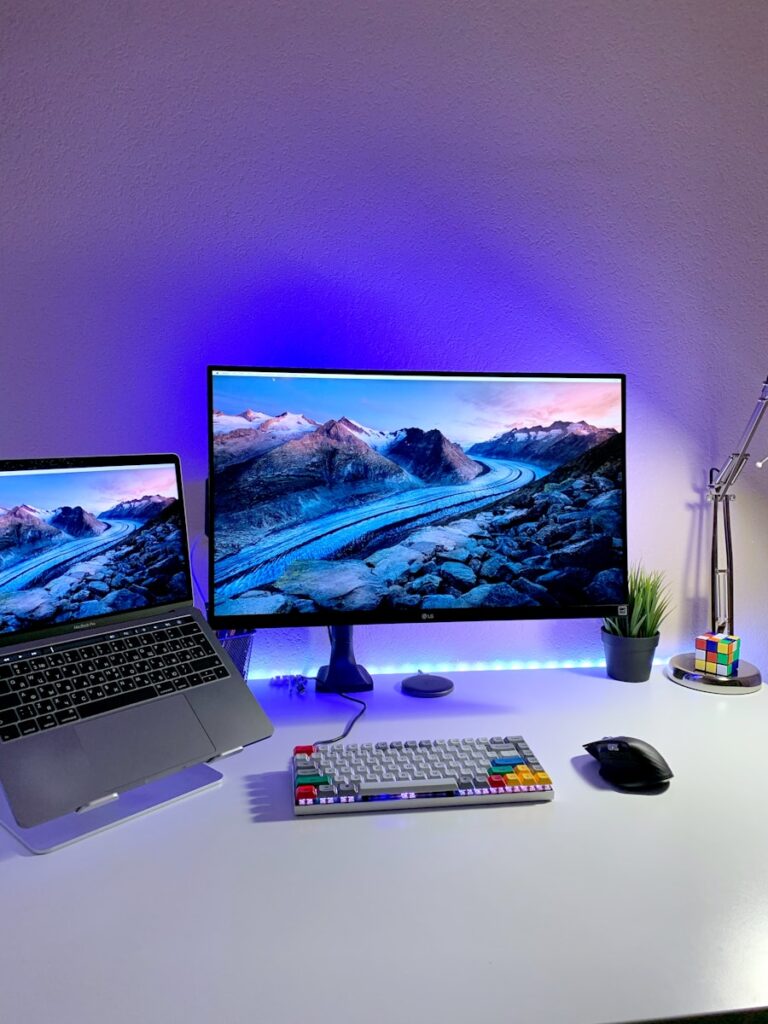
Introduction
Choosing between a gaming laptop and a desktop is a tough call for any gamer. Each has its pros and cons, from performance and portability to cost and customisation. Whether you’re a hardcore gamer, a casual player, or a professional streamer, picking the right system is crucial. Let’s break down the key differences for you so you can make the best choice!
Performance Comparison
Processor & GPU Power
When it comes to raw performance, desktops generally have the edge. They use full-sized CPUs and GPUs, meaning better processing power and higher frame rates. Gaming laptops, while powerful, use mobile versions of these components, which are optimised for efficiency rather than sheer performance.
RAM & Storage
Desktops offer more flexibility when it comes to RAM and storage. You can easily swap out RAM sticks or add extra SSDs and HDDs. Gaming laptops, while offering upgradeable RAM and storage in some cases, are usually more restricted in terms of customisation.
Cooling Systems & Thermals
Cooling is another area where desktops shine. Their larger cases allow for better airflow, reducing overheating and improving longevity. Laptops, on the other hand, struggle with heat dissipation due to their compact form factor, often leading to thermal throttling.
Portability & Convenience
Gaming on the Go
If portability is your priority, laptops are the obvious winner. Whether you’re traveling or moving between different gaming setups, a laptop gives you flexibility without the hassle of setting up a full desktop rig.
Space and Setup
Desktops require a dedicated space, with a monitor, keyboard, mouse, and sometimes even a large desk. Laptops provide a more compact all-in-one solution that’s easy to pack up and move around.
Upgradability & Future-Proofing
Can You Upgrade a Laptop?
While some gaming laptops allow upgrades to RAM and storage, upgrading the CPU or GPU is nearly impossible. Desktops, however, offer full upgradability, making them the better choice for long-term performance.
Desktops: The Kings of Customisation
With desktops, you can swap out nearly every component, from graphics cards to power supplies. This makes them a better investment if you want to keep up with the latest gaming hardware.
Display & Gaming Experience
Screen Size & Refresh Rates
Most gaming laptops come with screens between 15-17 inches, while desktops allow for larger, high-refresh-rate monitors. A 240Hz desktop monitor will provide a much smoother experience than a laptop’s built-in display.
Resolution and Graphics Fidelity
Desktops support higher resolutions and ultra-wide monitors, giving you a more immersive gaming experience. While high-end gaming laptops do offer 4K displays, they can struggle to maintain high frame rates at that resolution.
Price & Value for Money
Cost per Performance
Desktops generally offer better performance for the price. The same budget that gets you a mid-range gaming laptop could get you a high-performance gaming desktop.
Longevity & Durability
Desktops have a longer lifespan because they can be upgraded over time. Gaming laptops, on the other hand, become outdated faster and often need to be replaced sooner.
Best Gaming Laptops:
Best Gaming Desktops:
Conclusion:
If you need portability, a gaming laptop is your best bet. But if raw power, upgradeability, and long-term value are what you’re after, a desktop is the way to go. Ultimately, your choice depends on your gaming needs and lifestyle.
FAQs:
Which lasts longer, a gaming laptop or desktop?
Desktops last longer due to better cooling and upgradability.
Are gaming desktops better for streaming?
Yes, they provide more power for multitasking and higher-quality streams.
Can I connect a gaming laptop to a desktop monitor?
Yes, via HDMI or DisplayPort.
How often should I upgrade my gaming PC?
Every 3-5 years for optimal performance.
Do gaming laptops overheat easily?
Yes, especially under heavy loads, due to compact cooling systems.






